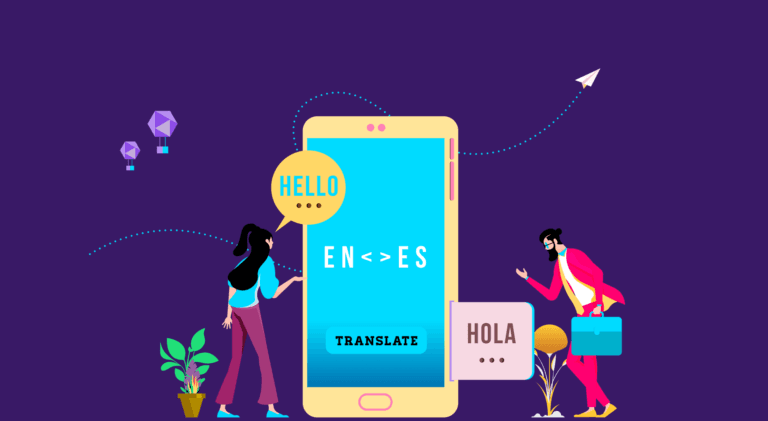10 Effective Tips to Decide Your Translation Rates

When you are a novice in the translation business, it can be hard to figure out whether you should charge by word or hour, or a flat rate for each project. When you offer translation services, you will be faced with a question sooner or later: “How much should I charge?” It’s a question of economics and ethics. On the one hand, you want to make enough money to live comfortably. On the other hand, you don’t want to take advantage of anyone by increasing the translation services cost. It is where your knowledge of the field and position comes into play.

Usually, you’re either quoting a fixed price with your client or charging by the word. The fact is that every translator charges different translation rates. When you’re new in business and don’t have much experience under your belt, or when your schedule is erratic and hard to predict, clients might not like hearing that they’ll need to pay more than expected.
Top 10 Tips for Fixing Your Translation Service Rates
There is no one right way to go about deciding on your translation prices, but there are some things you should keep in mind when deciding how much you should charge.
1. Determine your commitment to your work
The most critical factor before you fix any translation rate against your services is how serious you are about your work. Include all your engagements, commitments, and efficiency, and then decide how much work you can do in a day, week, and month.
Translating is an excellent way to supplement your income, but it’s crucial that you not over-exert yourself by setting too high a bar for how much work you can do to make the money you desire.
If your target monthly income is Rs. 50,000, but you can’t translate more than Rs. 10,000 worth of material in a month, then it doesn’t matter if there’s a lucrative translation project waiting for you—you simply won’t be able to accept it.
2. Ask other professionals about their rates
Do a quick survey of the market and try not to be swayed by the highest or lowest prices you find. Find an average translation rate that reflects fair value for your work. You can enquire about the prevalent rates in your professional circle.
If you have a specialty that has clients coming back to you, consider raising your rates slightly because of its uniqueness. If only you can do what you do, or if you do it better than everyone else, then most clients will be willing to pay a premium for it.
3. Estimate your total income
If you’re working off-site, how much time do you spend commuting? How far away is the location where the project will take place? Are there any potential pitfalls along the way that could slow down your progress on the project (trains/buses running late, getting stuck in traffic, etc.)? Figure out how much you need per hour to make up for your living expenses. It means accounting for your rent, food, utilities, and other expenditures you need to make each month.
4. Determine how fast you can work

How many words do you want to translate per minute? How many pages do you feel comfortable translating in an hour? If a document is too long (such as a book), will you be able to edit and proofread it at the same time that you translate it? If not, will this slow down your pace too much? Writing down these questions will allow you to figure out how much time and effort it will take to complete a project—and thus, help you decide what amount of money is necessary to enable yourself to complete the project profitably.
5. Evaluate the word count
While deciding on a standard translation rate, you can create slabs of word count. For simple translations, let us say that for anything less than 500 words, you can charge an average rate of Re. 1 per word. While for more than 500 words, you can raise the rates. For example, 1.9/1000 words, 2.0/1500 words, 2.5/2000 words, etc. Furthermore, you can set a flat fee for certain translation jobs. Whatever decision you make on the rate or rate pattern, do not forget to consider your expertise, experience, and efficiency.

6. Language matters the most
Many people can translate major, in-demand languages, such as Spanish, French, German, Russian, etc. Because there is more supply than demand, these languages garner low translation rates. So, your competency in languages like Mandarin, Dutch, Korean, or Persian allows you to charge a higher rate. Moreover, any language with fewer people to translate lets you demand high translation service prices. The more languages you are fluent in, the more options (and thus, more opportunities) you will have.
7. Deliberate on the subject
Besides the general translation of text, videos, audio, etc., there is a tremendous possibility for you to ask for high rates if you have a specialization in a specific field or language. More

expertise means less time spent on researching technical terms and project completion. You are free to demand the highest per-word rates if you can translate, for instance, a scientific manual from Dutch to English. Materials such as technical, aircraft, or automotive manuals can be complex to translate from any language. Decide the translation service cost after reasonable contemplation of the time and effort required for such tasks.
8. Get your ISO certifications in order
Some clients demand ISO 9001- and ISO 17100-certified translation services. The ISO-9001 standard certifies a well-documented process by controlling the quality. The various parameters under a quality management system (QMS) include record keeping, defining consumer needs, documented procedures, organization, quality policy, and application standards.

On the other hand, the ISO 17100 standard stands for the legitimacy of translation providers, industry standards, guides, practices, and legislation. Conforming to these standards is no easy job. But if you manage to achieve it, you can accrue high translation costs.
9. Short deadline, more money
There are two ways to consider the deadline; the first is to impose an extra charge for same- or next-day delivery. Another way is to quote higher translation rates for work given on short notice and required early. But as a beginner, you have to abide by a limit. Your translation service rates must not exceed the average cost of translation services prevalent in the market.
10. Client location
If you get a translation job for a developing country, ask more questions about the client’s requirements and future work. If the client has a single project, offer them just above the lowest slab. Do the opposite if you fetch a job from a developed country. You can pitch your highest price, depending on your experience and expertise.
The most crucial factor regarding location is the currency and its value in your country. You can modify translation service rates accordingly. Above all, you can offer discounts to your long-term clients, and in return, you can ask for referrals and testimonials.
Some translators work full-time jobs and work as freelance translators in their free time. Others do their translation work throughout the day, combining their translations with other freelance work or side jobs. What works for you will determine how much money you want to make from your translations.
If you want to make more than what your full-time job gets you, but can only commit an hour or two per week, then charging a lower price per hour might be the best option. If you decide against setting a per-hour or per-word rate and want to go for a fixed price, try out different values and see what kinds of results they get you.
FAQs
There is no fixed standard for setting a rate. You can look for the average rate in the market, correlate it with your experience, type of project, and deadlines you can meet, and then decide on the rate. It’s best to start by defining how much free time you have and how fast you work.
There is a surge in translation services. Also, with the advent of web 3.0, every business and creator is on the internet from all over the world. Therefore, the field is expected to grow at a CAGR of 2.7%.
Languages like Dutch, Mandarin, and Korean are in high demand.
Yes, you can draw a big salary every month through translation. You can scale your income as you grow.
Many websites induct freelancers after conducting a basic translation proficiency test. You can register yourself on such platforms and begin your career as a translator with no prior experience.
Latest Blogs
Learn how to rank on AI search engines like ChatGPT, Perplexity, and Gemini by optimizing your content for authority, structure, and relevance. Stay ahead in AI-driven search with this strategic guide.
Explore the best healthcare SEO services for your medical practice. Improve online visibility and effectively reach more patients in need of your services.
Discover top social media agencies specializing in banking solutions, enhancing financial services and driving engagement.
Get your hands on the latest news!
Similar Posts

Translation
5 mins read
All You Need to Know About Language Translation and Terminology Management

Translation
5 mins read
6 Reasons to Translate Content into German

Translation
5 mins read